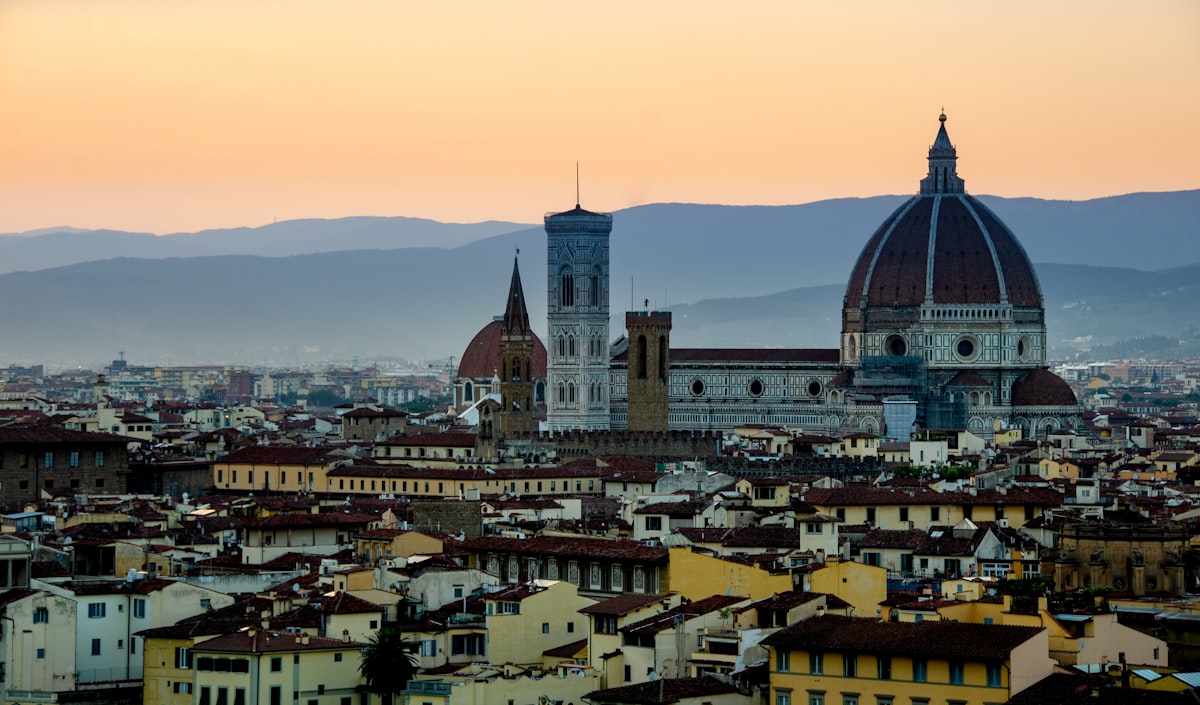The language of inspiration

One of the things I quickly discovered when I started describing The Enlivenment, is that it is difficult to explain the philosophy conceptually. While its holistic ideas are familiar to indigenous and Eastern cultures, Western culture (and its language) doesn’t really seem to cater for it.
Or at least, that was what I thought until my stay in Italy, last summer.
Coming from the North of Europe, I’m used to very explicit and direct communication. The Dutch especially are known for it. It is often said that our cultural foundation is based on the (reformed) Protestantism that was spread through the Reformation in the late 16th century. The resulting cultural chasm with the Catholic South is still obvious.
Spending lots of time with an Italian friend, I learned more about their ways of communication, the Italian emphasis on relationships and the implicit nature of their language. “You don’t need to put words on everything, Tim”, she said. “There is beauty in what isn’t said, but still understood.”
What an insight! It was an active reminder that communication goes beyond words and concepts. Communication is about expression, which comes in all forms and shapes, including silence. It made me understand Italy better, which seems to be all about expression.
At the core of the enlivenment, is the cultivation of aliveness. There is a beingness to everything which seeks its authentic expression. A potential that is intrinsic to life, waiting to emerge, always in relation to the larger whole that it is part of.
I have come to believe that that is what beauty is, the authentic expression of essence. And that love is the embracing of that beingness, with something larger. To become one with the world.
That love affair can only stem from being. It cannot be feigned. Connection can only come from authenticity. A brief glance in the eyes of a smiling stranger can hold more connection than a long conversation with someone you know for years.
The same goes for expression. Why is it that a glimpse at the duomo in Florence brings me in a state of awe, while a concrete office building leaves me feeling alienated?
Could it be that the first one is built as an object of expression while the second one is just a means to an end? The first one has meaning in itself, while the second one is an object of utility.
Rooted in antiquity, Italian culture has maintained a strong bond with its rich essence identity which it has always cultivated to the fullest extent. My own country has its creation story dating back to the reformation and the enlightenment that followed many centuries later. It also has a strong (and beautiful) identity but a different, more functional way of expressing it.
Thinkers like Max Weber, argued over a century ago how Protestantism, with its strong emphasis on soberness and work ethics, laid the foundation for today’s capitalism. Together with scientific rationalism, this has become the dominant narrative in the Western world.
It has shaped our way of thinking and communicating. Ideas need to be expressed rationally to be taken seriously. While this makes a lot of sense in the realms of physics or other exact sciences, it falls short on the most important questions of life.
We cannot quantify questions of purpose, beauty or love. Any attempt to do so indicates a failure of understanding our true source of knowing, which is our experience. Sadly, it is our experience that has become suspicious while abstract concepts dominate our decision making.
Confusing conceptual thinking for reality breeds alienation. We can see this in the climate discussion, once the argument for preserving nature becomes CO2 reduction, we have reduced life to just a tool to serve our interests. The argument for preservation of nature is life itself.
Meaning goes beyond utility. The meaning of the family-owned business around the corner goes beyond its economic utility. It cannot be argued for rationally, it can only be experienced. Like that, there are many arguments that can only be made experientially.
It is why art exists, to communicate what can only be experienced. Italy reminded me that the West has a long history of communicating ideas artistically. The splendor of Venice speaks for itself and doesn’t need to be explained. Beauty is the ultimate argument. It inspires us, it nurtures us. It seduces us into oneness.
As we start to realise that we are inherently interwoven with the web of life, our sense of self expands beyond our individual identity. Not driven by dogma but inspired through embodied intuition. No number of words can truly make the case for it, only our experience can. It requires a different language to be spoken. A language that speaks to our hearts. That is language of the Enlivenment; the language of inspiration.